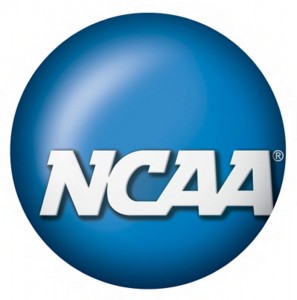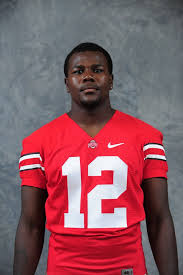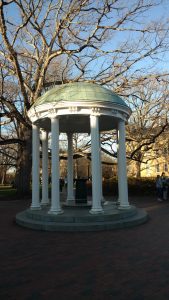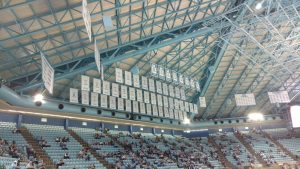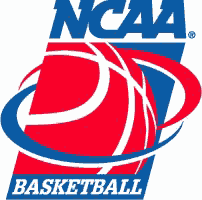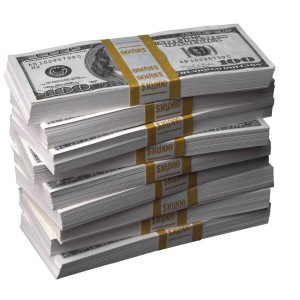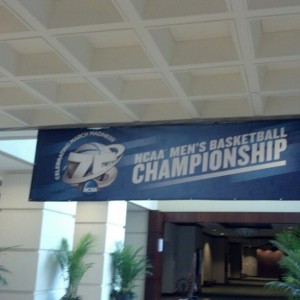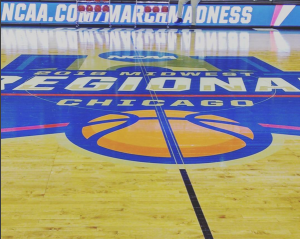Editor’s Note: the original publication where this article was posted has since been eradicated, so we brought this post over to The Sports Bank before it got deleted. It originally ran in August 2013.
I can’t remember the last time I used the phrase student-athletes in my writing. I never consciously used it; and if it was said in a press conference, I simply used a different quote. I made an effort to not implement it into my finished product. Never used to think the phrase student-athletes was just a mindless corporate euphemism, but in fact, it’s something much more sinister.
Never said the term student-athletes because we all know the stories of star college basketball and college football players: not going to class, getting their grades fixed, majoring in basket-weaving etc. Like the Ohio State backup QB Cardale Jones infamously tweeted: “I didn’t come here to play school, I came her to play football.”
The recently released EPIX documentary “Schooled: the high price of college sports” features the scandal that went on within the North Carolina Tar Heels academic services.
Mary Willingham, learning specialist at UNC-Chapel Hill, talks about the “paper classes” that North Carolina Tar Heels on the football team take. These courses are simply: write one paper and turn it in.
One academic tutor in the film talked about a football player that “wanted to go into Engineering because he liked choo-choo trains.”
But these types of stories have been done. We’ve heard that.
I’m more interested in the sin of commission applied to the phrase student-athletes than the sin of omission applied to the phrase student-athletes. I pen this call for action upon a recent visit to the Haymarket Square memorial (pictured above) right here in Chicago.
Just steps from the Lake Street Green Line station you can find the site of the Haymarket Tragedy, which took many lives in the cause of the 8 hour workday. I saw the artistic re-creation of the speaker’s wagon used to promote the movement for workers rights on that fateful day of May 4th, 1886.
In the Gilded Age, Chicago was ground zero in the fight against the exploitation of labor. Now I use my Chicago based cyberspace speaker’s wagon to advocate workers rights. Walter Byers, first executive director of the NCAA, serving from 1951 to 1988, invented the term student-athlete simply to keep Universities protected from paying workman’s compensation benefits, or wrongful death benefits. That’s all the phrase student-athletes means.
It’s just a legal definition protecting schools from being liable, and potentially sued by players.
In one of his final public appearances, Byers had a sort of Dr. Frankenstein level remorse for what he created, referring to the system which he had so much influence in building, as having a “neo-plantation mentality.” This is why we in the media need to abolish the phrase student-athletes.
I know what you’re saying, student-athletes are amateurs. The notion of amateurism was started by the nobles in England; simply to keep all other classes out of sports. The aristocracy wanted to keep athletics for themselves and shut out the working man and lower classes. What group of people have the time and energy for an activity that doesn’t pay?
Only the rich or “leisure class.” (Actually sounds a lot like the media industry by the way; it’s why you have so many silver spoons and two comma kids working in the media business.) This notion of amateurism was then brought over to the elite institutions of the Ivy League, which founded college athletics, and the other schools picked it up from there.
“Schooled” also tells us about the notion of the ancient Greek Olympians being romanticized amateurs is total b.s. Greek Olympians were proud and well compensated mercenaries.
Before the Haymarket Affair, the notion of the 8 hour work day and labor rights seemed radical. However, times change. People evolve. In the 1950s, a scholarship was a good deal to student-athletes. It was long before college football revenues exploded, television contracts skyrocketed and coaches’ salaries took off exponentially.
All the while the student-athletes get nothing but the same benefits of a scholarship; which is subject to being taken away if the University deems certain conditions not being met. Today, we need new rules because we have a revolutionized economic landscape.
Perhaps ironic, or coincidental, or maybe it’s just dumb luck and there is no deeper meaning to it, but you know what sits adjacent to the Haymarket Memorial? A sports bar.
Yes, the Haymarket bar and grill, which commodifies dissent. They promote the acts of dissidents and rabble rousers in the ultimate higher cause of selling alcohol and food. It’s one of the most prominent businesses near the square, and its many television sets often feature the work of unpaid labor.
At Waldheim Cemetery, just steps from where the CTA Blue Line ends in Forest Park, you’ll find the Haymarket martyrs monument where those who were hung for conspiracy are buried. The pedestal reads:
“The day will come when our silence is more powerful than the voices you are throttling today.”
Those are the last words of August Spies, said from the gallows right before he was put to death. He was one of the three to speak that infamous night on the wagon.
Voices are being heard:
Ed O’Bannon and his lawsuit against the NCAA, Josh Huff speaking out about the NCAA stopping him from throwing a birthday party, the Grambling players walking out due to unsafe working conditions, the recent comments of Arian Foster, Kain Colter from Northwestern and APU, the players from Georgia Tech and Georgia in All Players United.
The day is coming for the NCAA. We can help the battle for social justice by no longer repeating student-athletes, the signature phrase of the NCAA neo-plantation mentality.
Paul M. Banks is the Founding Editor of The Sports Bank. He’s also the author of “Transatlantic Passage: How the English Premier League Redefined Soccer in America,” and “No, I Can’t Get You Free Tickets: Lessons Learned From a Life in the Sports Media Industry.”
He currently contributes to Ravens Wire, part of the USA Today SMG’s NFL Wire Network and the Internet Baseball Writers Association of America. His past bylines include the New York Daily News, Sports Illustrated, Chicago Tribune and the Washington Times. You can follow him on Linked In and Twitter.
